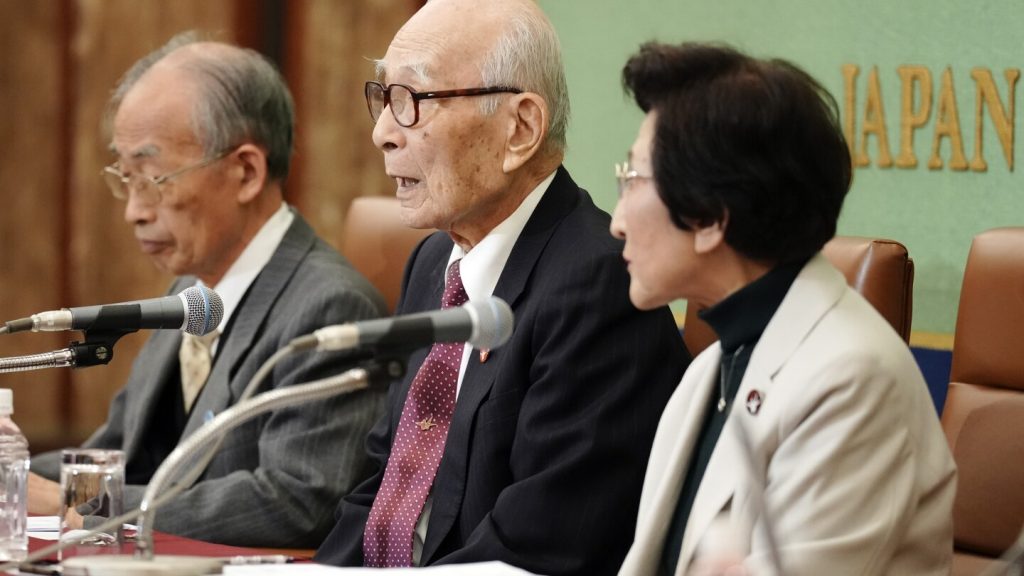Survivors of the atomic bombings on Hiroshima and Nagasaki are feeling a renewed sense of urgency to campaign for nuclear disarmament following the recent awarding of a Nobel Peace Prize. Terumi Tanaka, a survivor of the Nagasaki bombing, stated that receiving the award has motivated him to work even harder towards this goal. As the 80th anniversary of the attacks approaches, Tanaka emphasized the importance of focusing on the next 10 years and strengthening the movement for nuclear disarmament. He also expressed a desire to lead a large movement of testimonials to raise awareness about the devastating impacts of nuclear weapons.
Tanaka, a retired materials engineering professor, urged Japan to take the lead in nuclear disarmament, given its unique position as the only country to have experienced atomic attacks. Despite being under the U.S. nuclear umbrella, Japan has yet to sign the Treaty on the Prohibition of Nuclear Weapons, a decision that survivors continually advocate against. Tanaka plans to address these concerns with Prime Minister Shigeru Ishiba, who supports nuclear deterrence, during an upcoming meeting in January, emphasizing the need for Japan to play a proactive role in nuclear disarmament efforts.
Another survivor, Michiko Kodama, who endured the atomic bombing on Hiroshima, expressed the importance of sharing the reality of nuclear weapons with the public. Despite receiving the Nobel Peace Prize and numerous congratulatory messages, Kodama stressed the need for more people to understand the true impact of nuclear weapons, especially as survivors of the bombings are aging and may not be able to continue sharing their experiences for much longer. She highlighted the importance of preserving their stories and ensuring that future generations are aware of the horrors of nuclear warfare.
Nihon Hidankyo, the Japanese atomic bomb survivors’ organization, has been actively working for nearly 70 years to maintain a taboo around the use of nuclear weapons. The group consists of grassroots movements of survivors who have dedicated themselves to advocating for nuclear disarmament and sharing their harrowing experiences with the world. Since the first atomic bombings in Hiroshima and Nagasaki, the power and number of nuclear weapons have increased significantly, raising concerns about the potential for catastrophic consequences if such weapons were to be used again. The survivors of the bombings continue to push for global efforts to eliminate nuclear weapons and prevent future tragedies.
The U.S. atomic bombings on Hiroshima and Nagasaki in 1945 resulted in the deaths of hundreds of thousands of people, marking a tragic chapter in human history. The bombings led to Japan’s surrender and the end of World War II, but the lingering effects of radiation and the devastation caused by the nuclear attacks continue to impact survivors and their families. The annual commemorations of the bombings serve as a reminder of the catastrophic consequences of nuclear warfare and the urgent need for countries to work towards disarmament and peace. The recent recognition of the survivors through the Nobel Peace Prize has further highlighted the significance of their advocacy efforts and the importance of preventing nuclear proliferation.


